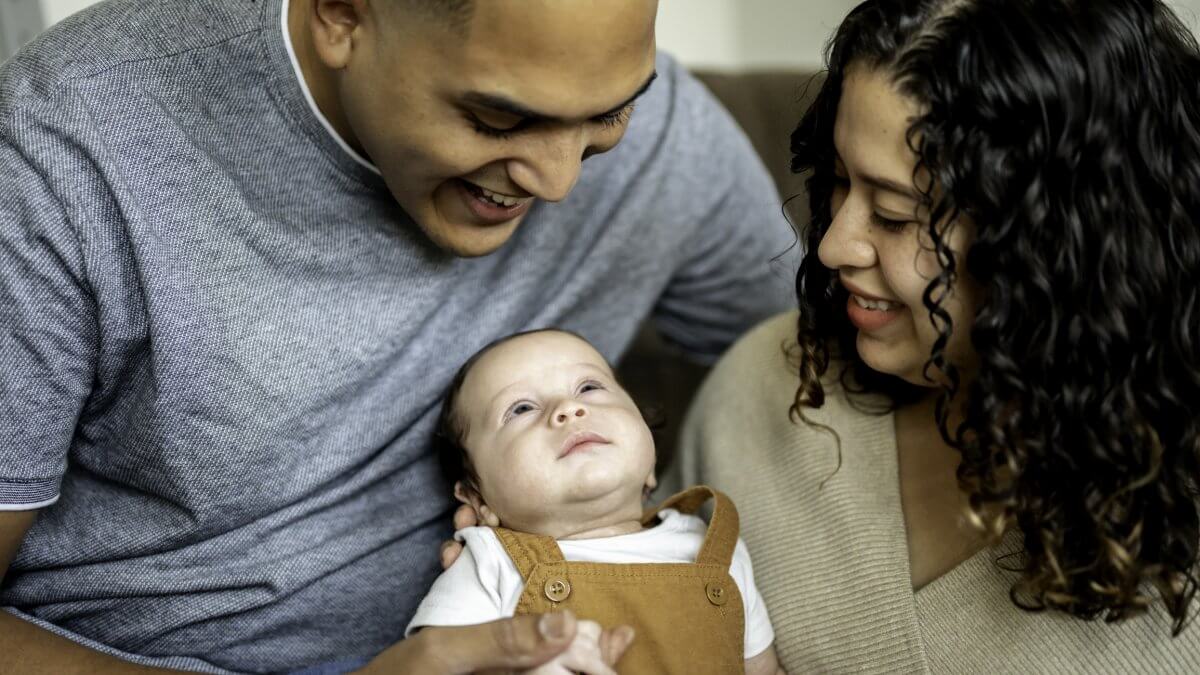If you’ve faced failed IVF cycles or don’t know what to do next, surrogacy offers a proven path to parenthood—with higher success rates and a predictable timeline.
In this guide, you’ll learn how surrogacy works for couples with unexplained infertility, why it might be the right choice for you, and what steps to take next.
Curious about surrogacy for couples with unexplained infertility? Fill out our form to speak with a surrogacy specialist about your unique situation.
Exploring Surrogacy for Couples with Unexplained Infertility
Surrogacy for couples with unexplained infertility bypasses many unknown barriers to conception.
If issues like implantation failure, uterine abnormalities, or endometrial receptivity are suspected but unconfirmed, surrogacy ensures an optimal environment for embryo development.
All of our surrogates are thoroughly prescreened before you have match with them. Their medical history is carefully reviewed, and they must have successfully carried at least one previous pregnancy to term to ensure they are fully prepared for the journey ahead.
When you have embryos, we can match you with a surrogate quickly. If you’re ready to move forward, it’s time to start your surrogacy process. Fill out this form to get matched with a surrogate.
Does IVF Work for Unexplained Infertility?
IVF can sometimes work for unexplained infertility, with roughly half of families achieving pregnancy, but for many couples diagnosed with unexplained infertility, IVF is unsuccessful.
Understanding Unexplained Infertility and Failed IVF
Even when the cause of infertility remains unexplained—understanding these potential challenges can help guide your next steps toward building your family.
Here’s a list of potential causes for failed IVF with unexplained infertility:
- Embryo implantation failure: The embryo may fail to implant in the uterus despite being healthy. This can be caused by issues related to the endometrial lining or immune system responses that interfere with implantation.
- Uterine or endometrial factors: In some cases, the uterus may not be receptive to an embryo, even if there’s no obvious medical condition. A thin or abnormal uterine lining, scarring, or fibroids could be undetected causes.
- Subtle hormonal imbalances: Small hormonal imbalances may not always show up in routine testing but can still affect embryo development, implantation, and pregnancy maintenance.
- Immunological factors: Some couples with unexplained infertility may have immune system disorders that impact embryo implantation, such as autoimmune diseases that attack the embryo.
- Genetic factors: Even without a known genetic disorder, minor genetic issues in either the egg or sperm can lead to poor embryo quality or failure to implant.
If you’ve experience multiple failed IVF cycles, surrogacy may provide a more reliable path to having a child.
If you don’t have viable embryos, you can still pursue surrogacy using donor embryos or donor eggs and sperm, giving you the chance to make your dreams of parenthood a reality.
Coping with Unexplained Infertility
Unexplained infertility can have life-changing effects on families, so it is normal to experience a wide variety of emotions including grief, sadness, confusion or frustration.
Here are some strategies to help you cope during this time:
- Allow yourself to grieve: It’s okay to feel upset about your situation. Give yourself permission to process these emotions.
- Seek professional support: Working with a counselor who specializes in infertility can provide you with tools to manage the emotional aspects of your journey.
- Lean on loved ones: Sharing your feelings with friends and family who understand can provide comfort and perspective.
- Join a support group: Connecting with others who are experiencing unexplained infertility through support groups like Hopeful Hearts Collective and Navigating Life and Loss With IVF, can offer solidarity and a sense of community.
While the emotional toll of unexplained infertility can be overwhelming, taking care of your mental health and finding support is key.
When you’re ready, exploring options like surrogacy can help you move forward with renewed hope and confidence.
Moving Forward After Unexplained Infertility: What Next?
If you’ve been diagnosed with unexplained infertility, surrogacy may be the key to creating the family you’ve dreamed of.
Take the first step by exploring how this process can work for you by filling out our quick form.
You can also keep up with infertility and surrogacy news when you follow us @american_surrogacy.
Frequently Asked Questions
Can you do surrogacy if you are infertile?
Surrogacy is still possible if you are infertile. Surrogacy can bypass uterine or implantation challenges, and you can use donor sperm and eggs or embryos if you do not have embryos with a high likelihood of success.
Is it possible to get pregnant with unexplained infertility?
In some cases couples spontaneously conceive after being diagnosed with unexplained infertility, but in other cases, unexplained fertility is a long-term problem that makes you unable to conceive without intervention.
What disqualifies you from surrogacy?
Individual surrogacy clinics and surrogacy agencies have their own criteria for what disqualifies you or qualifies you from completing surrogacy, and additionally, some states may have laws or regulations that restrict your ability to complete surrogacy.
One common requirement for surrogacy is medical need for surrogacy.
What is the most common reason that an infertile couple would choose surrogacy?
There are several reasons that infertile couples choose surrogacy including uterine issues, recurrent pregnancy loss, severe health risks, or failed fertility treatments.









